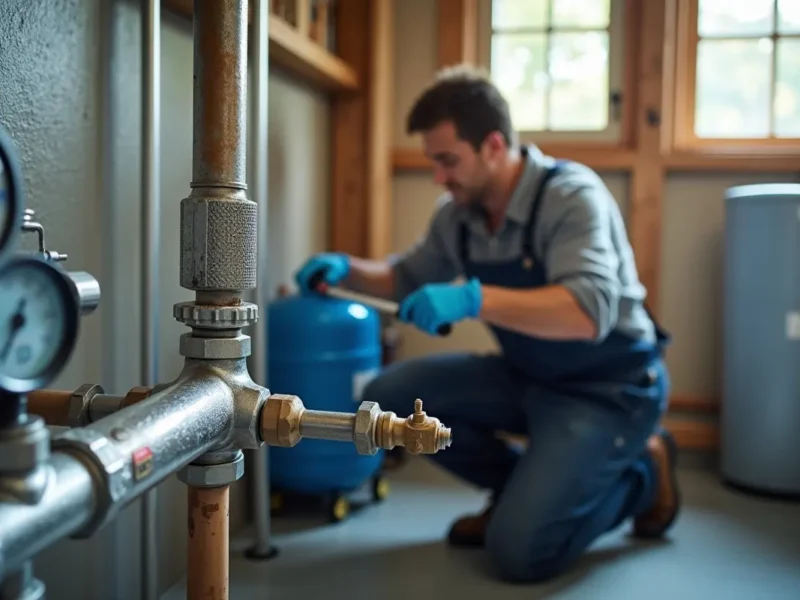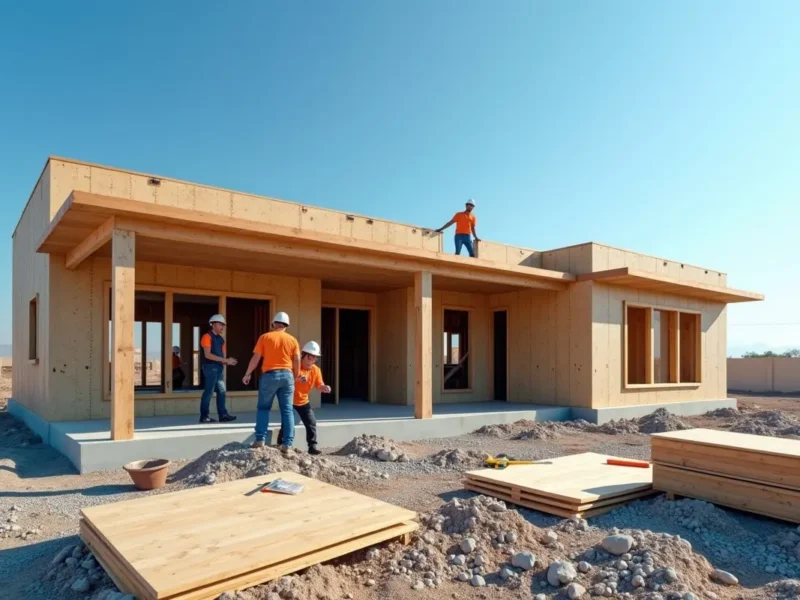While searching for a home, understanding the role of home inspections is essential. They help you uncover potential issues that aren’t visible at first glance, giving you a realistic picture of what you’re getting into before you commit. Skipping this vital step could mean costly surprises down the line, from hidden water damage in the basement to electrical wiring that needs an overhaul. Buyers often focus on location and aesthetics when house shopping, but the true condition of a property matters just as much. A closer look into the structure, mechanics, and overall safety can end up saving you serious headaches and money in the long run.
Contents
- 1 Why a Thorough Inspection Matters for House Shopping
- 2 Key Components You Don’t Want to Miss
- 3 How Home Inspections Influence the Real Estate Market
- 4 Negotiating Repairs and Closing the Deal
- 5 Preventing Expensive Surprises
- 6 Strategies for a Smooth Inspection Experience
- 7 Moving Forward with Confidence in the Home Buying Process
- 8 Embracing a Well-Informed Decision
Why a Thorough Inspection Matters for House Shopping
Most people get excited about the décor or neighborhood perks, yet an inspection reveals the less glamorous details that could turn into expensive problems. It’s not just about structural integrity; inspectors also look at plumbing, electrical systems, and potential health hazards like mold. When you know exactly what’s going on behind the walls, you can negotiate repairs or ask for a price reduction, which can be especially helpful if you’re juggling financing options.
Once you have the report in hand, you’re no longer buying blindly. You can factor any necessary fixes into the final offer, or even walk away if the issues are too significant to handle. Having that inside knowledge puts you in control of the transaction and ensures you’re making decisions based on facts, not assumptions.
Common Oversights Buyers Make
It’s easy to get swept up in the excitement of house shopping and overlook essential aspects of a home. Some buyers make the mistake of relying solely on their real estate agent’s intuition or on personal observation. While your agent’s experience can be valuable, a trained inspector uses specific tools and technical know-how to spot deeper red flags that even the best agent might miss. Rushing forward without professional input can lead to unpleasant discoveries after you’ve signed the papers.
Key Components You Don’t Want to Miss
Buying a property extends beyond observing paint colors and floor plans. Pay attention to critical systems that keep your household running smoothly.
Structural and Foundation Issues
A strong foundation is the backbone of any home. Inspectors check for cracks, uneven settling, or water penetration that could compromise the stability of the entire structure. Catching these problems early could protect you from expensive repercussions. If you find foundation issues, you might request further evaluation from a specialist or renegotiate the purchase terms.
Electrical and Plumbing Systems
Faulty wiring isn’t always obvious. Sometimes the first sign of an electrical problem might be flickering lights or outlets that don’t work. Likewise, plumbing leaks can stay hidden behind walls for a long time, causing mold growth and damaging your property without you even noticing. A thorough inspector will meticulously check these systems so you’re not left with constant repairs after you move in.
How Home Inspections Influence the Real Estate Market
Property condition weighs heavily on final listing prices. Sellers who know their home has been well-maintained are generally more confident about setting their asking amount. Meanwhile, buyers can use inspection results as leverage to counteroffer if something doesn’t meet their expectations. This dynamic shapes the real estate market by rewarding sellers who’ve invested in upkeep and protecting buyers from overpaying.
Prospective homeowners aren’t only thinking about location and curb appeal anymore. Savvy individuals are factoring in every detail, from the basement’s humidity levels to the age of the roofing materials. That extra layer of diligence can ensure properties are priced in a way that reflects their true state.
Negotiating Repairs and Closing the Deal
Armed with inspection findings, buyers have a tangible report that can influence the final negotiations. If the roof needs major patches or the HVAC unit is on its last legs, those concerns can be addressed before the deal is sealed. Sellers sometimes agree to fix significant issues, or they might offer a credit so you can handle the repairs after closing. It’s all about how you approach the conversation.
Evaluating Essential Fixes vs. Cosmetic Issues
Certain repairs are non-negotiable, especially if they pose safety hazards or involve structural integrity. On the other hand, smaller items like a chipped tile or a broken window latch can be minor annoyances rather than deal-breakers. Knowing the difference between necessary and superficial fixes can keep everyone focused on the issues that really matter. This approach streamlines your spending and ensures you don’t lose sight of what truly needs attention.
Preventing Expensive Surprises
The purpose of an inspection is to shed light on any lurking troubles, but it’s also a proactive measure. Spending several hundred dollars upfront can save you thousands in remediation later. If you find out early that a home needs a new roof or an upgraded electrical box, you have options. You can negotiate, budget for future repairs, or decide the property just isn’t worth the hassle. Being proactive often means fewer emergency calls to contractors once you’re settled.
Some first-time buyer tips recommend scheduling an inspection as soon as you’re serious about a property. That way, you can move forward with genuine confidence. The inspection report can double as a to-do list if you choose to buy. Rather than discovering these problems months down the road, you’ll have a clear strategy right from the start.
Strategies for a Smooth Inspection Experience
Although your inspector will do the physical evaluation, there are a few things you can do to make the process go as smoothly as possible. Arriving at the property before the inspection begins allows you to ask initial questions and point out any ongoing concerns you may have. Being present during the inspection means you see what your inspector sees. That direct involvement often clarifies the details in the report later on.
Choosing the Right Professional
Look for someone who’s certified through reputable organizations or has strong local references. Your real estate agent might recommend a reliable inspector, but it’s wise to do your own research and read reviews. Make sure the inspector provides a detailed written report with photos and an itemized list of what they checked. This documentation serves as a roadmap for any future repairs. A meticulous pro reduces your odds of overlooking essential issues.
Asking Targeted Questions
Don’t hesitate to ask about anything that sparks your curiosity unusual stains, odd odors, or outdated systems. Questioning the inspector can help you fully understand the home’s condition. Sometimes, an answer that sounds trivial might highlight a developing problem you’d otherwise miss. The more you engage, the better you’ll grasp how the house performs and what recurring maintenance it may require.
Moving Forward with Confidence in the Home Buying Process
Securing a solid property is about balancing what strikes your eye with what the inspector uncovers. By merging both the aesthetic allure and critical repairs, you can make a choice that serves you for years to come. Even if the inspection reveals a lengthy list of minor fixes, you still gain the advantage of knowing exactly what you’re dealing with. Knowledge really is power in this scenario, allowing you to plan ahead for maintenance or remodels without feeling blindsided.
Staying calm and open-minded helps keep negotiations civil. When all parties are transparent about any defects or needed upgrades, the path to a fair agreement becomes smoother. Buyers walk away feeling good about their purchase, and sellers can sell with the reassurance that they’ve been upfront about the property’s condition. That mutual trust often stems from a thorough, well-executed inspection.
Embracing a Well-Informed Decision
Ultimately, the inspection is your chance to shine a light on every corner of the home. Instead of relying on luck or quick walk-throughs, you get an expert’s perspective on windows, doors, roofs, and everything in between. By weaving this step into your house shopping routine, you can enter the contract phase with greater peace of mind. Rather than second-guessing your choice, you feel certain the financial commitment aligns with the home’s actual quality.
Even if a home has imperfections, you’ll appreciate the transparency that comes with the inspection process. That knowledge helps you weigh the pros and cons in an honest way, ensuring your dreams of homeownership aren’t dashed by unexpected setbacks. You’ll thank yourself later when you’re comfortably settled in a place that truly fits your vision and your budget.



